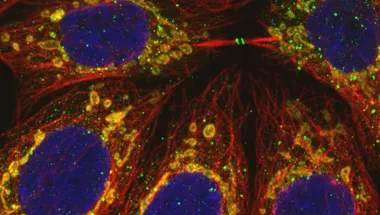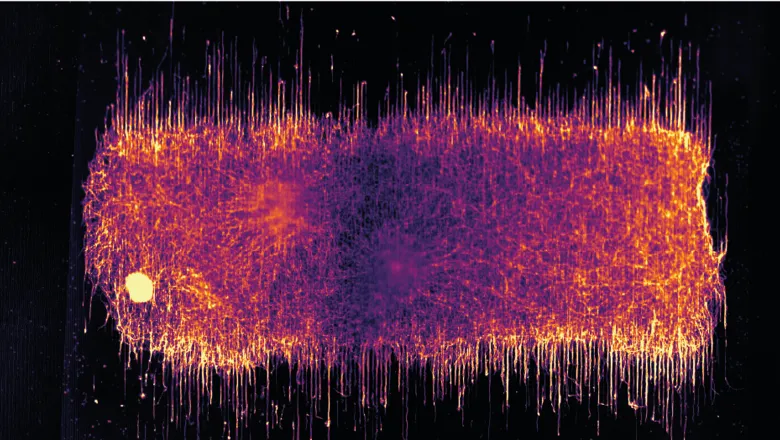
Dr Andrea Serio PhD
Reader in Neural Tissue Engineering
Research interests
- Neuroscience
Biography
My lab focuses on combining bioengineering, stem cell technologies and neuroscience to create complex models of the nervous system. We use these modelling platform to both discover new fundamental mechanisms in neurobiology, and to better understand the molecular chains of event that lead to neurodegeneration. Our interdisciplinary team focuses on a range of projects that seek to uncover the "engineering principles" of neurons, glia and complex circuitry, both to uncover new fundamental knowledge and to create new tools to model neural circuitry in vitro.
Please see my Research Staff Profile for more detail
Key Publications:
- Hagemann et al., 2022. Axonal Length Determines Distinct Homeostatic Phenotypes in Human iPSC Derived Motor Neurons on a Bioengineered Platform. Advanced Healthcare Materials.
- Harley et al., 2021. TDP-43 and FUS mislocalization in VCP mutant motor neurons is reversed by pharmacological inhibition of the VCP D2 ATPase domain. Brain Communications.
- Bergholt et al., 2018. Correlated Heterospectral Lipidomics for Biomolecular Profiling of Remyelination in Multiple Sclerosis. ACS Central Science.
- Serio et al., 2013. Astrocyte pathology and the absence of non-cell autonomy in an induced pluripotent stem cell model of TDP-43 proteinopathy. PNAS.
View all publications
Key Collaborators
- Prof Jernej Ule, King's College London
- Prof Rickie Patani, UCL
- Prof Giampietro Schiavo, UCL
- Prof Francesco Saverio Tedesco, UCL
Research

Lipids and Membranes Research Interest Group
A Lipids and Membranes Research Interest Group

The Francis Crick Institute
King’s is delighted to be a founding academic partner alongside UCL and Imperial College in the Francis Crick Institute, joining the multidisciplinary research expertise from all the Partners together to deliver world-leading biomedical research.
News
King's scientists developed a novel pipeline to create custom cell culture devices
The SOL3D pipeline is cheaper, versatile, highly reproducible and “democratises” the microfabrication of cell culture devices by allowing any wet lab,...

MAGIC consortium to accelerate development of gene therapies for muscular dystrophies
The MAGIC consortium brings together 15 international partners to transform the treatment landscape for muscular dystrophies

Research

Lipids and Membranes Research Interest Group
A Lipids and Membranes Research Interest Group

The Francis Crick Institute
King’s is delighted to be a founding academic partner alongside UCL and Imperial College in the Francis Crick Institute, joining the multidisciplinary research expertise from all the Partners together to deliver world-leading biomedical research.
News
King's scientists developed a novel pipeline to create custom cell culture devices
The SOL3D pipeline is cheaper, versatile, highly reproducible and “democratises” the microfabrication of cell culture devices by allowing any wet lab,...

MAGIC consortium to accelerate development of gene therapies for muscular dystrophies
The MAGIC consortium brings together 15 international partners to transform the treatment landscape for muscular dystrophies

